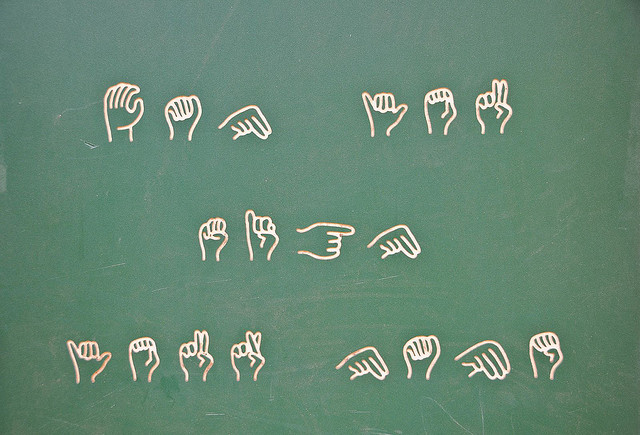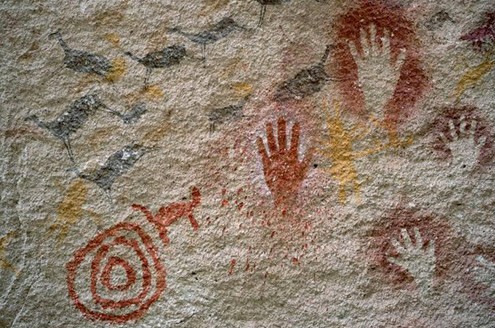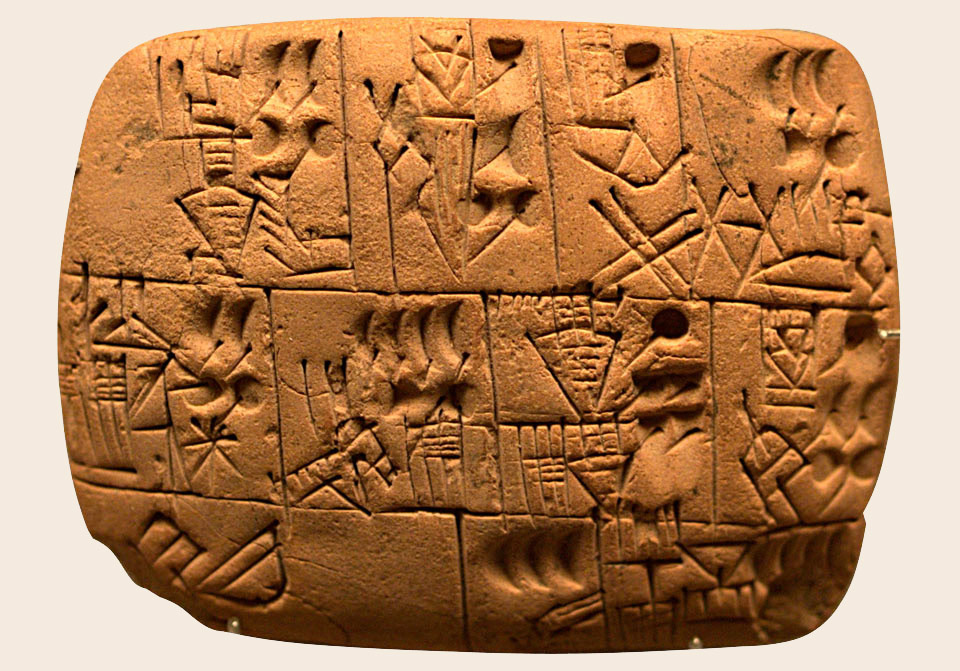Debating The Origin of Language: Who Knows Where Language Came From?
Table of Contents
Valerie Everett/Flickr
How did our modern system of communicating come into existence?
While it is true that many creatures in the animal kingdom interact using sounds, there is no doubting that we, homo sapiens, have put our vocal and linguistic talents to particularly astonishing use.
In our myriad of complex languages we have composed sonnets performed operas and vocalized philosophical thought on the meaning of our own existence.
The Science
Scientists tend to fall in to one of two dominating schools of thought on this topic. As explained by psychologist Dr Nicolas Fay, one theory of language evolution posits that human vocal communication evolved from primate vocalizations.
The other theory contains an extremely primitive sign language – a system of gestures that gradually evolved into the spoken word.
The origin of language has been pondered for thousands of years. The Book of Genesis relates the story of the people of Babel who were punished by God for their attempts to reach the heavens.
The story posits that God imposed a diversity of unshared languages on those involved so that their society might break down as a result of their inability to communicate.
Babel: Maybe Not
A recent study carried out by Dr Fay and his colleagues at the University of Western Australia, 'Creating a communication system from scratch', suggests that the confounding of a unified language such as that used by the people of Babel would have been “unlikely” to prevent them from successfully communicating with one another.
The study simulated conditions under which early human language may have developed between 30,000 and 100,000 years ago. 50 pairs of university students were asked to communicate “a range of pre-specified items (emotions, actions, objects)” with one another without the use of their language.
Dr Fay notes that out of the two dominant theories of human language origins, most people believe that language developed from sound because, for the majority, sound and language go hand in hand.
Signal or Sound?
However, the results of this particular experiment clearly supported the second theory and revealed an overwhelming natural tendency to use sign and gesture. Through refining these movements, the participants in the study were able to develop a new language.
“When people do not share a system for communication they can quickly create one, and gesture is the best means of doing so,” Dr. Fay explains.
He finds this theory of language evolution is further supported both by the ways in which people will communicate with others who speak languages foreign to them, as well as the ways in which deaf people naturally use their hands to communicate.
Such observations reveal how readily humans use the best tools at their disposal to adapt to their need for communication. The school of thought that favors gesture as an early means of human communication posits that overtime language moved from the hands to the mouth.
The issue of the origin of language has always been a thorny one, fraught with different threads and opinions. Is our propensity for language genetically encoded or is it learned through interaction? Is it an exclusively human device or is it learned and developed from our pre-human ancestors?
As noted by Nicky Phillips for SMH, the mid-19th century saw the issue at the center of a furious debate, where the topic “became so speculative that the Linguistic Society of Paris banned any existing or future debates on the subject.”
The aforementioned key theories go some way towards explaining how language evolved among humans, but what of the variety of languages? Estimates of the number of languages in the world are usually in the range of 6,000 to 7,000.
Then, there are the distinctions drawn between languages and dialects – a controversial subject in itself.
Modifications of languages occur as a result of speakers adopting or inventing new ways of using the language at their disposal. We can see both how new languages spread and how dialects may be localized.
Many of the world’s most widely used languages have identifiable roots in other languages. Languages are written down and then modified. New words are invented, old words are colloquialized.
It is easy to take language for granted. As observed by Timothy Donaldson in his book Shapes for Sounds, as babies “one of the first things we ever do is make a noise.” The historical, cultural, and social processes that have transformed the baby's impulse into into modern languages complete with their dialects, slang formations and infinite creative potential really are mind-blowing and uniquely human.
If you're an avid language learner, check out the wide array of language courses offered by Listen & Learn. Contact us today for more information on courses in your area.





